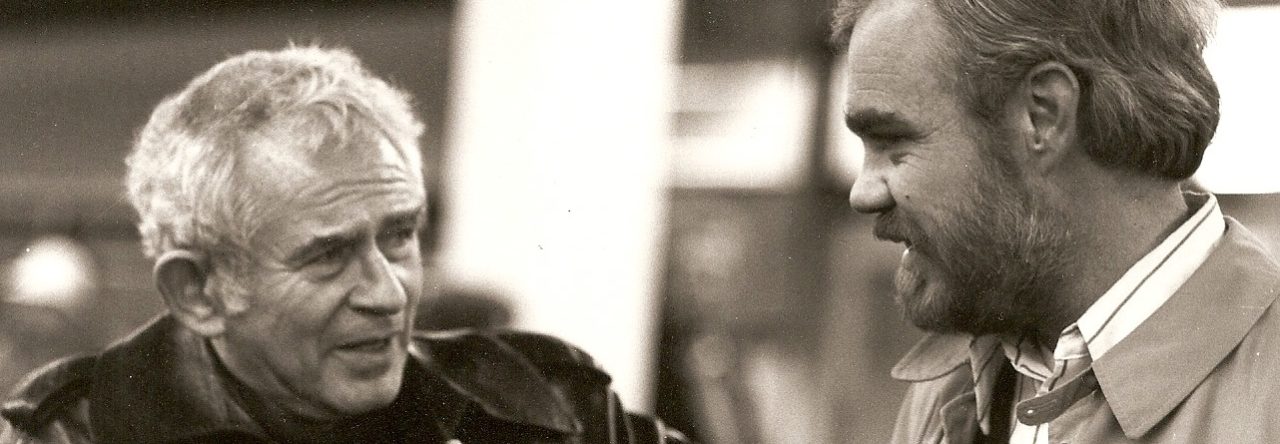For sheer rambunctiousness and fecundity, however, few can match Norman Mailer’s Selected Letters, as chosen by his latest biographer from an astonishing 45,000 pieces of correspondence.
Links Page 5 of 17
For fans of the novelist-pugilist, this posthumous fruit of his correspondence — 716 letters out of almost 50,000 — is indispensable. For anyone interested in the intellectual battles of the past 60 years, it provides a detailed road map of the controversies and egos involved. (Correspondents included Jackie Kennedy, Marlon Brando, Henry Kissinger, both Clintons, and pretty much every white writer of his generation.) And for the rest, it’s a subtle document of an unsubtle man’s wit and erudition, even (or especially) when it’s wielded as a weapon.
Mike interviewed on Dialogue.
Lennon’s role as custodian of Mailer’s literary estate may seem redundant: after all, acting as his own curator was part of Mailer’s addiction to self‑dramatisation. Commencing with the taming and recontextualisation of the juvenilia and marginalia in 1959’s Advertisements for Myself, he was determined to frame his own works and set the parameters within which they were to be considered. However, his executor’s pruning proves indispensable: having given himself over to the fanatical labour of making a selection from more than 45,000 letters, Lennon presents us with 716 key missives, dating from 1940 to Mailer’s death in 2007.
Mailer, who won two Pulitzer Prizes, wrote 44 books and also produced one of the largest troves of letters in American life. J Michael Lennon, author of a 2013 Mailer biography, worked with the author over the last 30 months of his life to sift through 45,000 missives he wrote to 4,000 people, narrowing the selection down to 714. Beginning with his 1940 letter to his parents from Harvard, asking if they would subsidise the cost of his applying to literary magazine The Advocate, Mailer’s correspondence offers an intimate look at the author in all his variety: filial, pugnacious, collegial, spiteful, affectionate, defiant and generous by turn. Of particular note: his letters to Jack Henry Abbott, the convicted murderer whose literary talent he championed, James Jones, William Styron and longtime friend Diana Trilling. (Random House)
Perhaps more than any other major writer but Eugene O’Neill, Mailer produced some of the best and the worst examples of American art. His letters are frank about his own uncertainly as to where he stood in the literary pantheon. On bad days, even a brilliant novel like An American Dream could seem like dreck to him. His letters are engaging because when it came to his main occupations—writing novels or thinking about the novels he was going to write—he was utterly honest with himself. All pretense falls away when Mailer goes to work on himself. He is a superb self-critic and also a sensitive critic of his predecessors and contemporaries. It is profitable to read what Mailer has to say about Hemingway, Faulkner, and many other writers. And he is generous with writers who seek his help, offering advice when it is asked for and reading the work of others—although he often has to beg off because of his own demanding writing schedule.
To celebrate the release of Starve the Vulture — the latest release in Akashic’s Kaylie Jones Books imprint — J. Michael Lennon spoke with Jason Carney about his inspirations, writing a memoir, and the differences between poetry and prose.
Most great writers are also great talkers, but writing begins where talking ends: in silence. Norman Mailer is one of literature’s great talkers, and his voice—his speaking voice—is crucial to his work. As a founding partner of a new upstart Greenwich Village weekly in the mid-nineteen-fifties, he even came up with its title: the Village Voice. Perhaps no writer of his time endured such keen conflict between his personal voice and his literary voice, and that conflict is at the center of “Selected Letters of Norman Mailer,” edited by J. Michael Lennon.
Selected Letters receives a mention in the Boston Globe:
Over the course of about 60 years, Norman Mailer, in addition to more than 30 books, wrote some 45,000 letters. About 700 pieces of his correspondence have been published in “Selected Letters of Norman Mailer” (Random House), edited by J. Michael Lennon. Mailer, who died in 2007 at age 84, wrote to Henry Kissinger, the Clintons, Monica Lewinsky, Truman Capote, James Baldwin, Lillian Hellman, and many other public figures.
